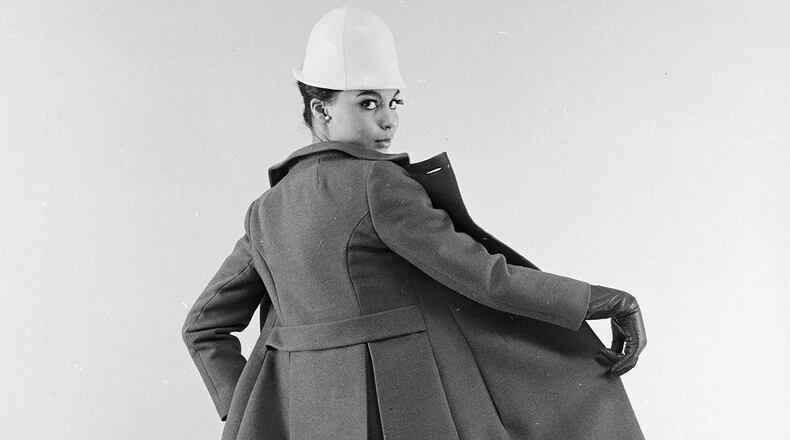In spring 2019 the influential Chicago-based Johnson Publishing Company, which produced Jet and Ebony magazines, ceased operations. The news was devastating to members of the black community who looked to those publications and its founder, John H. Johnson, to see positive reflections of the black community and icons of black achievement, as well as news of racial injustice. The largest African American publishing company in the world, JPC’s holdings include a massive four million-image archive of photographs that defined black life —and American life.
RELATED VIDEO: The best US art exhibitions for Women's History Month 2020
The primacy of the Johnson Publishing Company and the rich visual culture it spawned during its 76-year life span is at the center of Chicago conceptual artist Theaster Gates’ exhibition at the Spelman College Museum of Art, “Black Image Corporation.” The exhibition is about the public lives of prominent African Americans featured in the pages of Jet and Ebony, but also the intimate, private lives of people who saw their reflections in those images.
Gates has made a specific and strategic choice in what he has described as “my intervention into this archive.” The images in “Black Image Corporation,” focus on black women featured in Jet and Ebony from the 1950s to the 1970s taken by two editorial photographers, Moneta Sleet Jr. and Isaac Sutton. Like Jet and Ebony, Gates is in the business of celebrating black beauty as not simply a physical form, but as an expression of resilience and endurance.
On gallery walls, large framed photographs feature primarily models and entertainers from the magazines’ pages, images that reflect the glamorous, fashion-centric arm of Johnson Publishing Company. Also occupying the space is a professional photographer’s vintage light box, where contact sheets from the magazines’ archives marked up with red grease pencil give insight into the visual choices made by editors and photographers.
Dominating the larger gallery space is the kind of long wooden cabinet you might find in a library reading room, with a display of framed photographs from the Johnson collections placed front and center. On shelves below, visitors to the museum are invited to pull out and contemplate, even move around more framed images from the archives.
What Gates has created is an archive which from the outside feels slightly austere, even institutional.
But once visitors start digging in, Gates’ approach proves deeply personal, nostalgic and imbued with feeling.
The images on those shelves are varied: cheesecake photos of lithesome young women in bikinis, high fashion models wearing Halston and Valentino, Coretta Scott King and nursing students, church ladies, demonstrators, an African tribeswoman and her baby. As if to emphasize the emotional delicacy of the images, visitors are asked to don the kind of white cotton gloves required in archives presenting rare and sensitive materials. The intent is clear: African American culture is something precious, something worth preserving.
A testament to the profound impact that JPC had in the black community, contemplating the images in “Black Image Corporation” can feel akin to sorting through the relics and images in a grandparent’s home. Emotional triggers of vintage hairstyles, dresses and demeanor conjure up memories of mothers, grandmothers and aunts.
Gates’ accompanying video is set to a swoony jazz score that moves through the Michigan Avenue JPC Tower, from the product closets to John H. Johnson’s executive offices and even the basement mechanics. It’s all to tell a visual story of a bygone era of shoe shine machines, wall-to-wall carpeting and iconic rust and tan Seventies decor. The video is a reminder of the power of JPC but also — like the images — a melancholy time capsule and touchstone to all that is gone.
ART PREVIEW
“Theaster Gates: Black Image Corporation”
Through May 16. 10 a.m.-4 p.m. Tuesdays-Fridays; 10 a.m.-9 p.m. Fridays; noon-4 p.m. Saturdays. Suggested donation $3. Spelman College Museum of Fine Art, 350 Spelman Lane, SW, Atlanta. 404.270.5607, museum.spelman.edu
Bottom line: Chicago artist Theaster Gates highlights a positive vision of black life in his pop culture archive and exhibition.
About the Author
Keep Reading
The Latest
Featured






